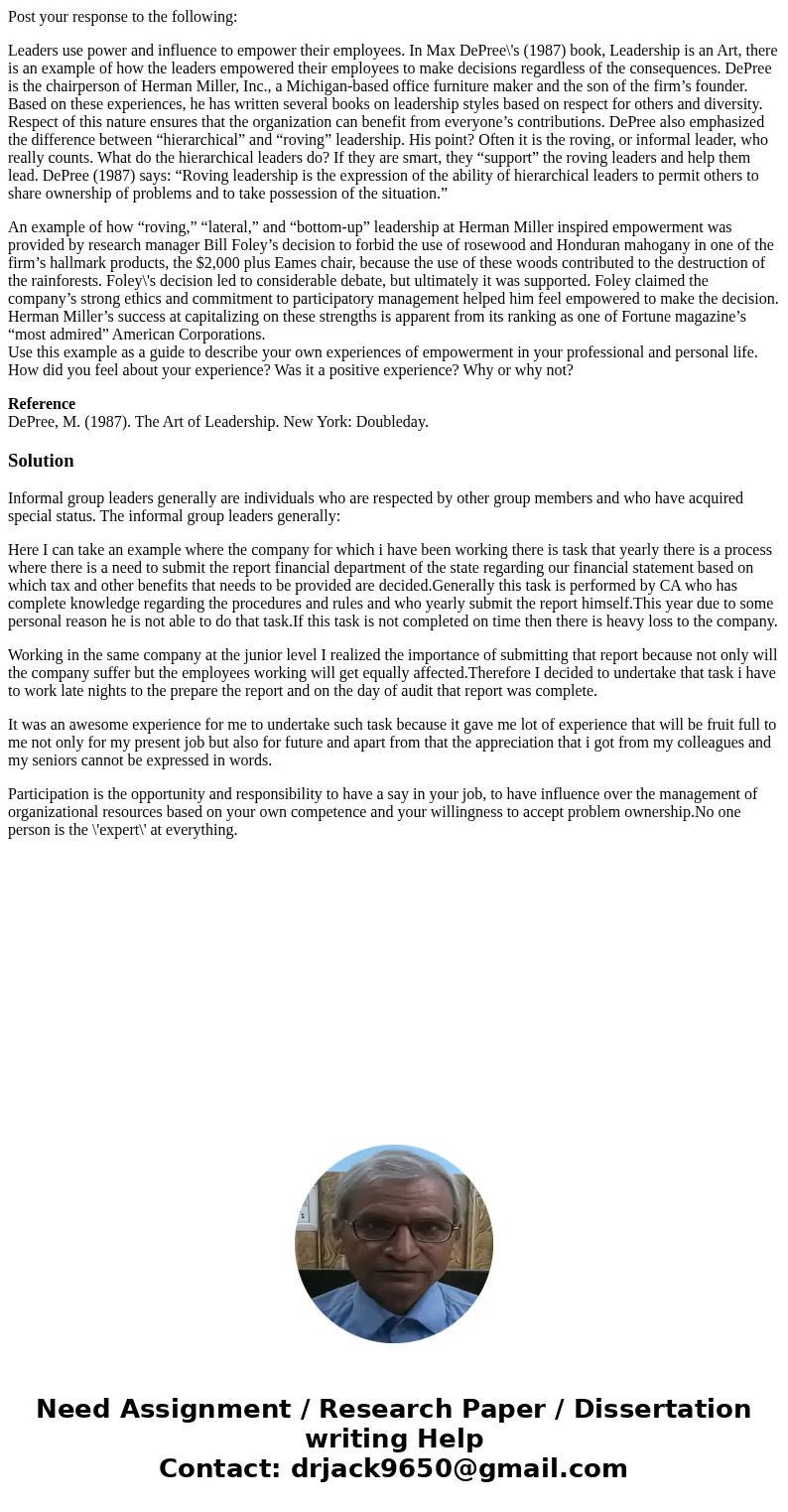Post your response to the following Leaders use power and in
Post your response to the following:
Leaders use power and influence to empower their employees. In Max DePree\'s (1987) book, Leadership is an Art, there is an example of how the leaders empowered their employees to make decisions regardless of the consequences. DePree is the chairperson of Herman Miller, Inc., a Michigan-based office furniture maker and the son of the firm’s founder. Based on these experiences, he has written several books on leadership styles based on respect for others and diversity. Respect of this nature ensures that the organization can benefit from everyone’s contributions. DePree also emphasized the difference between “hierarchical” and “roving” leadership. His point? Often it is the roving, or informal leader, who really counts. What do the hierarchical leaders do? If they are smart, they “support” the roving leaders and help them lead. DePree (1987) says: “Roving leadership is the expression of the ability of hierarchical leaders to permit others to share ownership of problems and to take possession of the situation.”
An example of how “roving,” “lateral,” and “bottom-up” leadership at Herman Miller inspired empowerment was provided by research manager Bill Foley’s decision to forbid the use of rosewood and Honduran mahogany in one of the firm’s hallmark products, the $2,000 plus Eames chair, because the use of these woods contributed to the destruction of the rainforests. Foley\'s decision led to considerable debate, but ultimately it was supported. Foley claimed the company’s strong ethics and commitment to participatory management helped him feel empowered to make the decision. Herman Miller’s success at capitalizing on these strengths is apparent from its ranking as one of Fortune magazine’s “most admired” American Corporations.
Use this example as a guide to describe your own experiences of empowerment in your professional and personal life. How did you feel about your experience? Was it a positive experience? Why or why not?
Reference
DePree, M. (1987). The Art of Leadership. New York: Doubleday.
Solution
Informal group leaders generally are individuals who are respected by other group members and who have acquired special status. The informal group leaders generally:
Here I can take an example where the company for which i have been working there is task that yearly there is a process where there is a need to submit the report financial department of the state regarding our financial statement based on which tax and other benefits that needs to be provided are decided.Generally this task is performed by CA who has complete knowledge regarding the procedures and rules and who yearly submit the report himself.This year due to some personal reason he is not able to do that task.If this task is not completed on time then there is heavy loss to the company.
Working in the same company at the junior level I realized the importance of submitting that report because not only will the company suffer but the employees working will get equally affected.Therefore I decided to undertake that task i have to work late nights to the prepare the report and on the day of audit that report was complete.
It was an awesome experience for me to undertake such task because it gave me lot of experience that will be fruit full to me not only for my present job but also for future and apart from that the appreciation that i got from my colleagues and my seniors cannot be expressed in words.
Participation is the opportunity and responsibility to have a say in your job, to have influence over the management of organizational resources based on your own competence and your willingness to accept problem ownership.No one person is the \'expert\' at everything.

 Homework Sourse
Homework Sourse